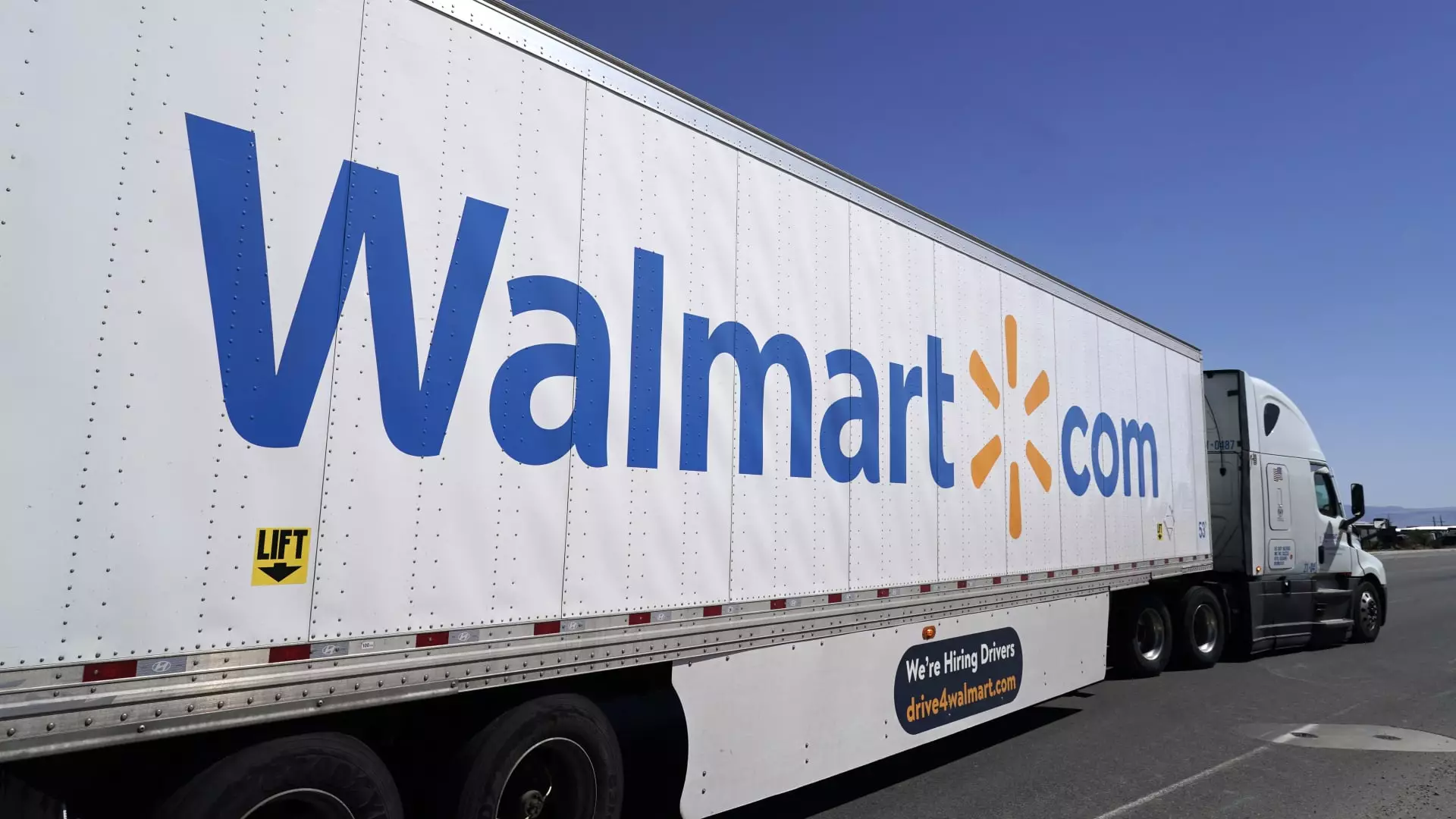In a significant legal development, the Consumer Financial Protection Bureau (CFPB) has brought forward a complaint against retail giant Walmart and the work-scheduling platform Branch Messenger regarding their treatment of delivery drivers. The CFPB’s accusations hinge on the claim that these companies coerced delivery drivers into using inadequately managed and financially burdensome deposit accounts to receive their paychecks. Rohit Chopra, the director of the CFPB, articulated the gravity of these allegations, stating, “Walmart made false promises, illegally opened accounts, and took advantage of more than a million delivery drivers.”
According to the CFPB’s complaint, which targets the operations surrounding the Spark Driver Program, Walmart allegedly enrolled over one million drivers into Branch accounts without their informed consent and insisted that paychecks be deposited into these accounts. Statements made by drivers suggest that they were intimidated into complying, with threats of termination should they refuse to use the mandated accounts. The systemic issues surrounding the alleged mishandling include not only financial penalties but also significant access delays, implying a larger pattern of exploitation.
As the CFPB outlines, drivers utilizing the Branch platform reportedly faced excessive fees and complications while trying to transfer their earned money to other accounts. It is estimated that these practices resulted in over $10 million in what Chopra termed “junk fees,” further illustrating how workers’ hard-earned money was siphoned away. Such allegations raise critical questions about the fairness and transparency of financial practices within the gig economy, particularly how major corporations handle the compensation structures for their workers.
The implications of these claims are multifaceted. If proven true, they not only highlight troubling dynamics between corporate power and vulnerable worker populations but also underscore the need for regulatory bodies to step in and take action against potential abuses. Such cases shine a light on the vulnerabilities of delivery drivers, who often have little recourse against large corporations and their associated practices.
In response to the CFPB’s allegations, Walmart has vigorously defended its practices, labeling the lawsuit a “rushed” effort filled with inaccuracies and misinterpretations of established legal principles. The company argues that it was not granted a fair chance to present its perspective before the complaint was filed, thus calling into question the thoroughness of the CFPB’s investigation. The conflicting narratives serve to exemplify the tension that exists in the regulatory landscape as stakeholders navigate corporate ethics and consumer rights.
Similarly, Branch Messenger has claimed that the CFPB’s complaint distorts the reality of the situation, positing that the allegations contain intentional omissions and misrepresentations. The firm asserts its commitment to compliance with legal standards and emphasizes the need for accurate reflection of its operational practices in the public discourse surrounding this issue.
The lawsuit against Walmart and Branch Messenger is more than just an isolated incident; it fits within a broader pattern of actions taken by the CFPB against various financial entities. Recent lawsuits have targeted companies like Comerica Bank and financial giants such as JPMorgan Chase and Bank of America. The bureau’s vigilant stance underscores a mounting concern regarding consumer and worker protections in the evolving landscape of financial services.
Researchers and policy analysts are increasingly scrutinizing protocols and practices associated with payment platforms and services. The challenges presented by the gig economy, characterized by its flexibility and rapid growth, put significant pressure on regulatory frameworks to adapt accordingly. As companies innovate, regulators face the critical task of ensuring that consumer rights are not only recognized but actively defended.
As the allegations against Walmart and Branch Messenger unfold, this case highlights the importance of accountability in corporate financial practices, especially within gig industries. The CFPB’s efforts to address systemic issues affecting workers’ financial welfare signal a commitment to safeguarding consumer rights amidst the complexities of modern employment models. Whether or not Walmart and Branch will face legal consequences remains to be seen, but the conversation surrounding corporate ethics, user consent, and worker protections is undoubtedly becoming more urgent. A comprehensive examination of these practices could pave the way for significant policy changes aimed at more equitable treatment for all workers in the gig economy.

